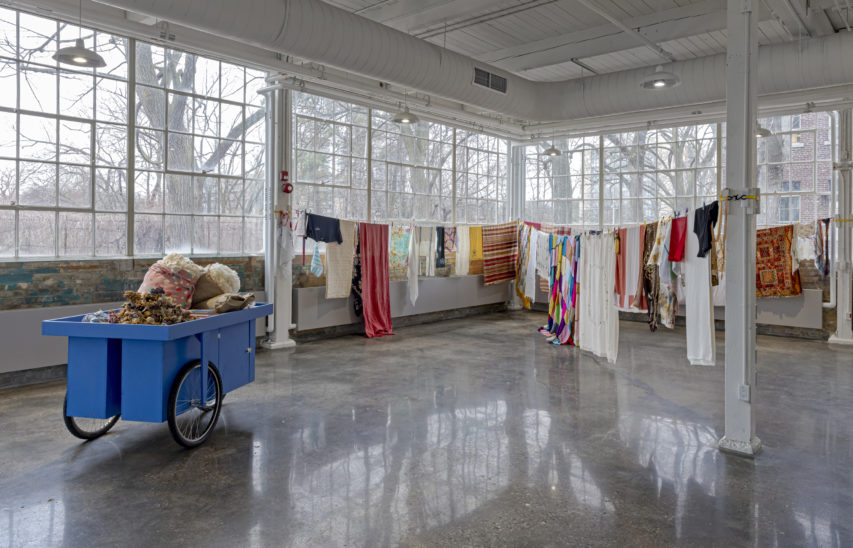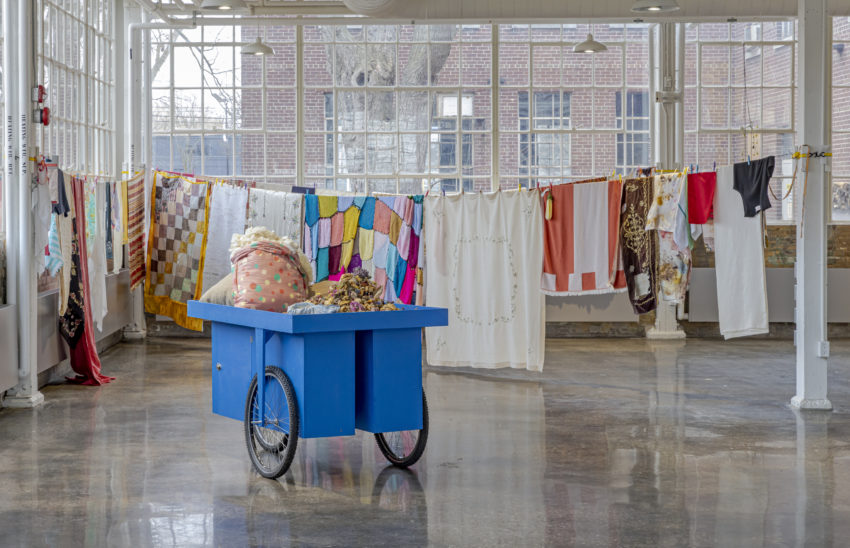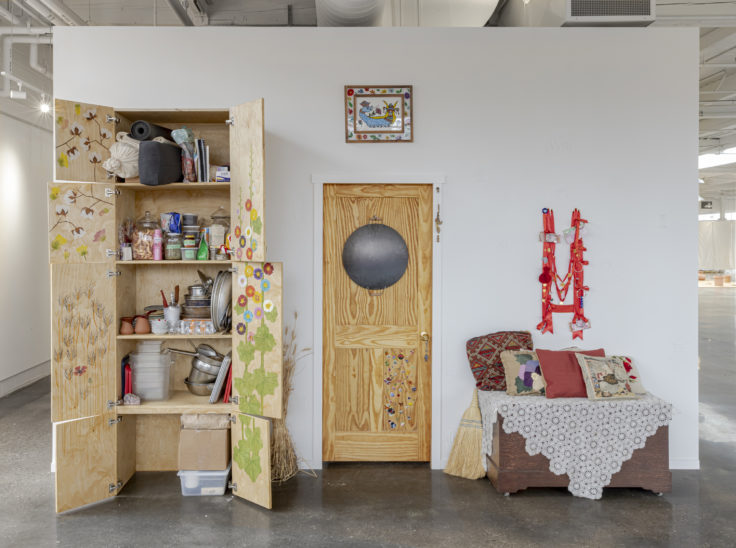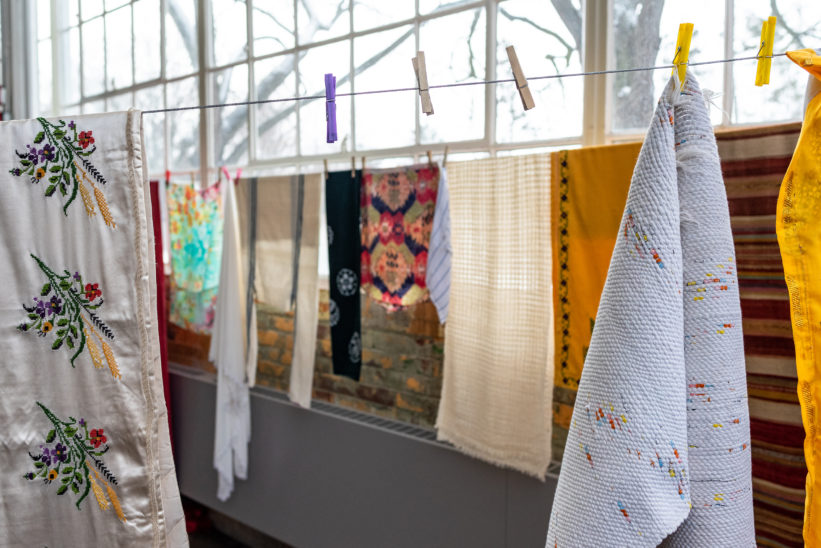Queer Dowry, as a commission for the Toronto Biennial in 2022, marks a significant shift in Derya Akay’s practice. While continuing to centre exchange and collaboration, this marks a deeply personal exploration of their ancestry, geographic roots, and personal relationship to their family histories, queer histories therein, and heirlooms, especially textiles. Derya is a first-generation settler in Canada, a diasporic trans Turkish person. The artist’s ancestors have been settled in Adana, Anatolia, for generations, growing food and creating livelihoods, clothing, and communities.
The Çukurova region, encompassing the lower plains of Adana in the Eastern Mediterranean, is known for its agricultural fertility. The recorded history of the region dating back to the first century BCE captures a mixture of nomadic movements and settlements of Armenian,Ramadanian and Turkoman tribes. Starting in the eighteenth century, the Ottoman Empire intervened in the communities, ecologies, and economies of Çukurova by introducing a capitalist economy and settler colonial practices with environmental and social upheaval that continue to impact the region into the twentieth century. One of the driving forces for the Ottoman interventions was the growing desire for cotton from the industrialized West. The Forced Settlement Decree of 1865 in Çukurova was a direct result of the American Civil War and the West’s lack of access to cotton grown with slave labour. With the Decree, both settled and nomadic people in Çukurova were forced to adopt and learn agricultural practices, and the region went through a significant shift over the nineteenth century. Changes in landholding practices and the introduction of private property rights in the Ottoman Empire coincide with the industrialization of agriculture in Çukurova. Over the centuries, settling nomads, Armenians, and many other migrants, such as Arabs and Greeks, turned the mountains, swamps, and marshes into a region of wealth and agriculture. Adana today is the result of this history.
Derya returned to Adana in 2021 during the process of creating Queer Dowry, a trip timed to coincide with the harvest of cotton. Coming from a family line of farmers and textile producers, their research includes consideration of the material inheritance that has been passed down the matriarchal lines of the artist’s family. Examining “dowry” practices observed in Anatolia, how might one queer the traditions and ceremonies tied to the gifting of a dowry outside of the conventions of gender binary and heteronormative marriage? Despite recent and ongoing silencing of queer and trans representation in Turkey (the arrest of four students in January 2021 at Boğaziçi University, for instance), figures from traditional Anatolian narrative imagery—for example, Shahmaran, a mythical half-woman, half-snake creature, and Burak, a mythical centaur in Islam—serve as icons for queer Muslim people living in diaspora.
Commissioned by the Toronto Biennial of Art and made possible with the generous support of the RBC Emerging Canadian Artist Program, SAHA Association, and the Canada Council for the Arts.
Audio Didactic:
Bio
Derya Akay (born in 1988, Istanbul, Turkey; lives in Vancouver, Canada) is an artist living on the unceded territories of the Musqueam, Squamish, and Tsleil-Waututh Nations. Selected recent exhibitions include Meydan, Polygon Gallery, North Vancouver (2021); Contact Traces, the CCA Wattis Institute, San Francisco (2021); The Neighbour’s Plate, Unit 17, Vancouver (2020); The Lulennial II: A Low-Hanging Fruit, Lulu, Mexico City (2018); HERE, the Aga Khan Museum, Toronto (2017); with bread, Campbell River Art Gallery, Campbell River (2017); and Pumice, Del Vaz Projects, Los Angeles (2017).
Exhibition Site
Small Arms Inspection Building
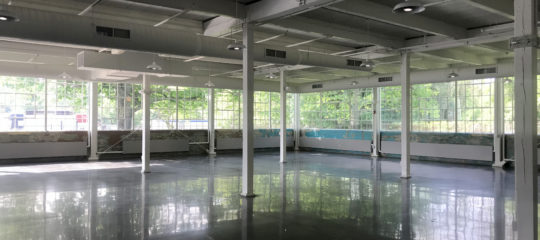
1352 Lakeshore Road East
Mississauga ON
L5E 1E9

